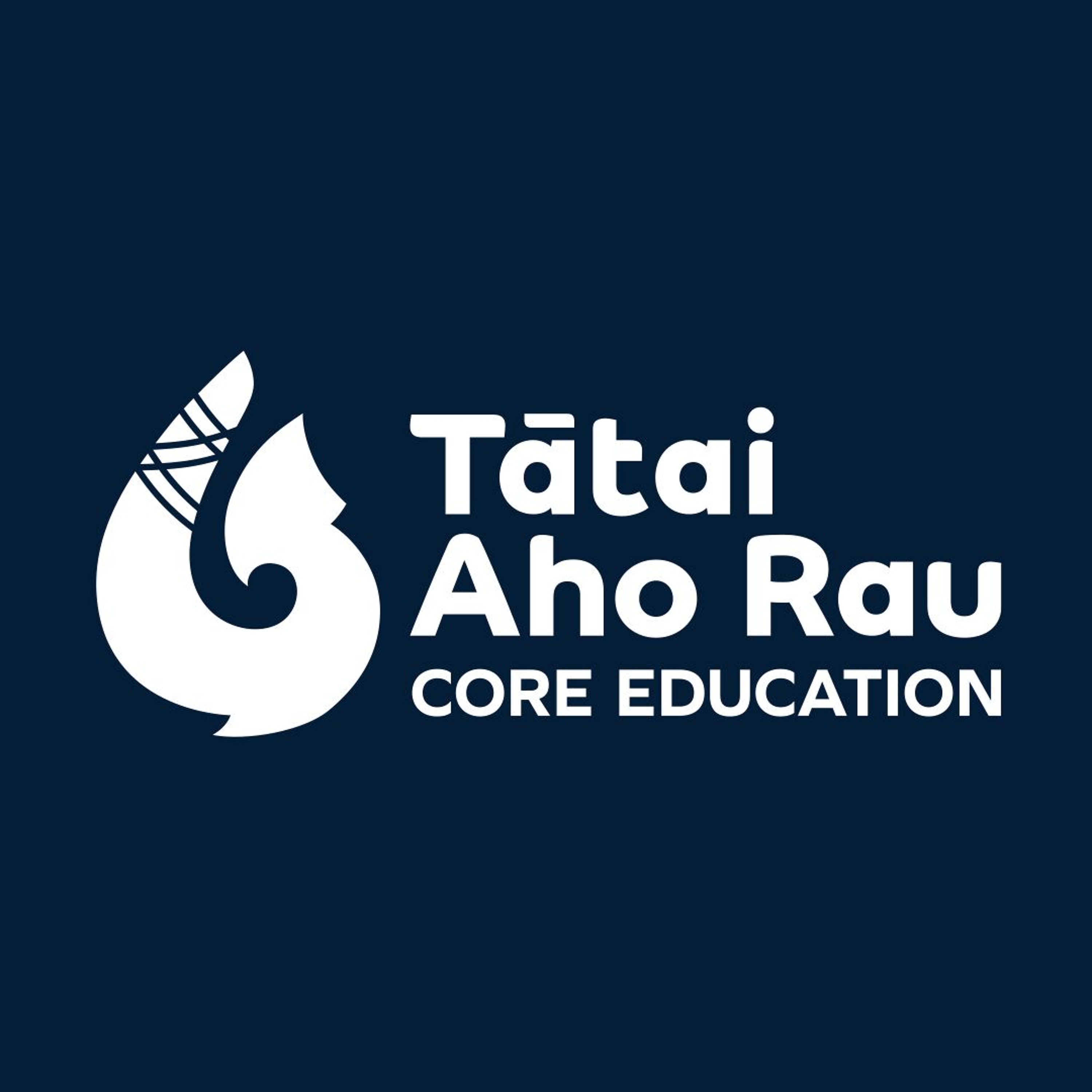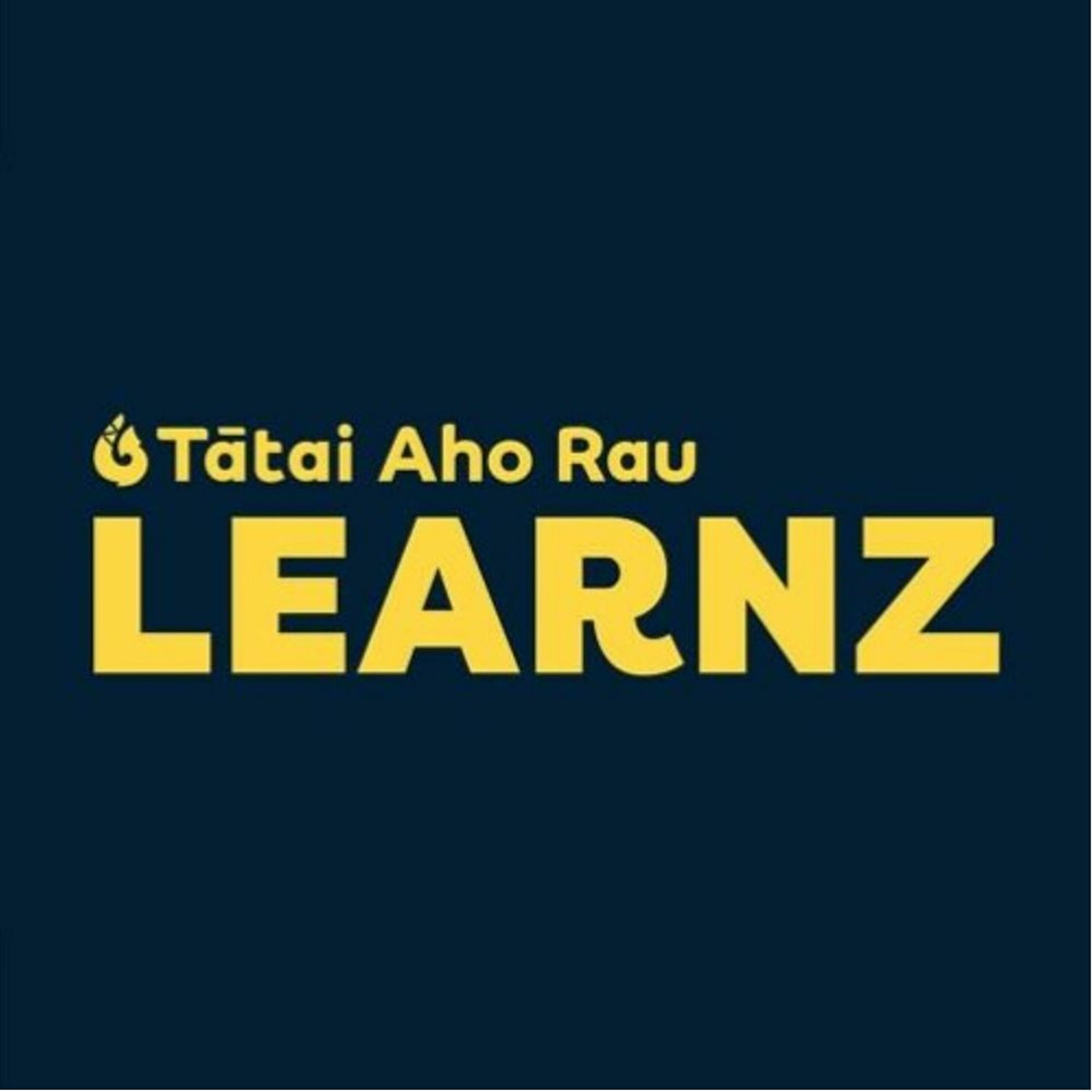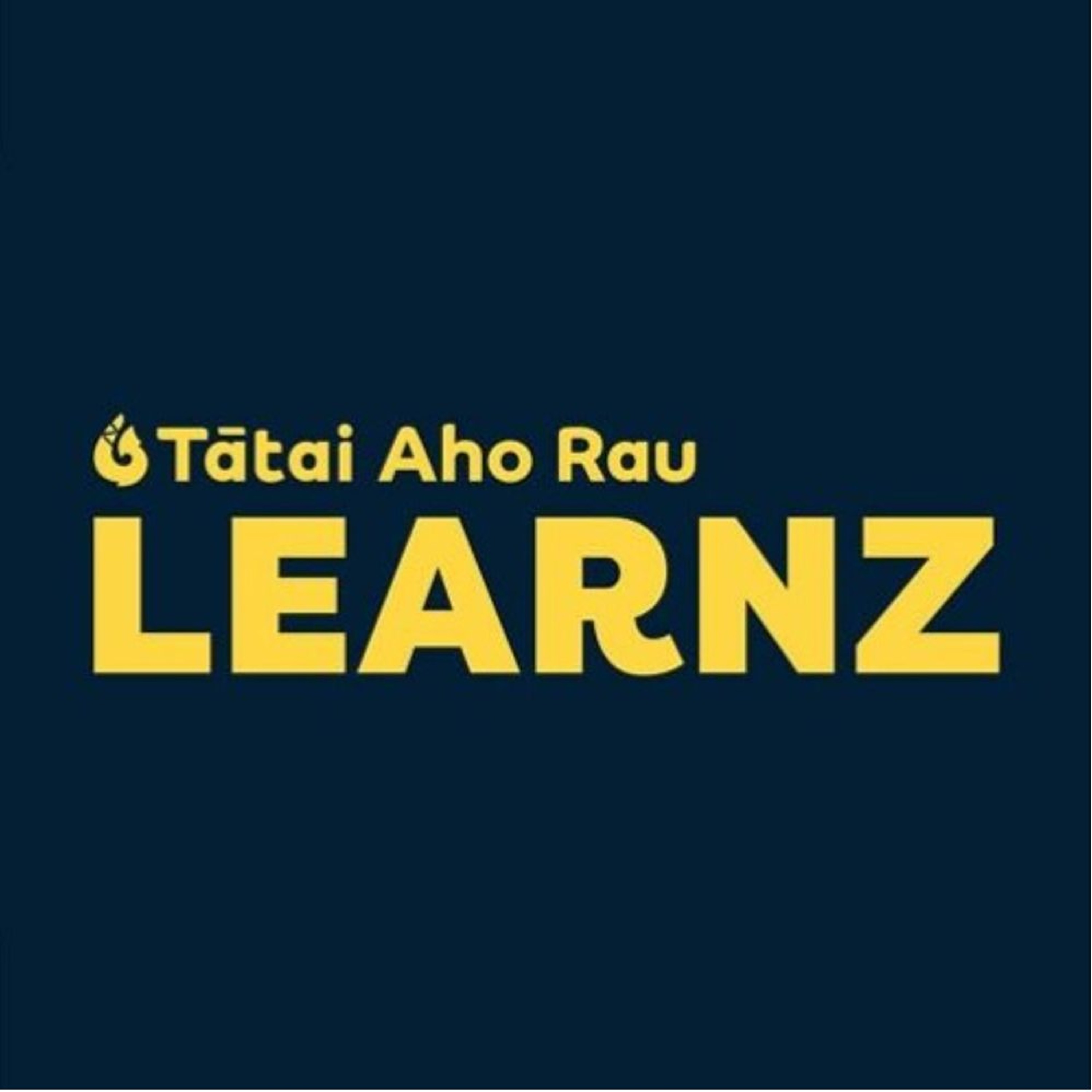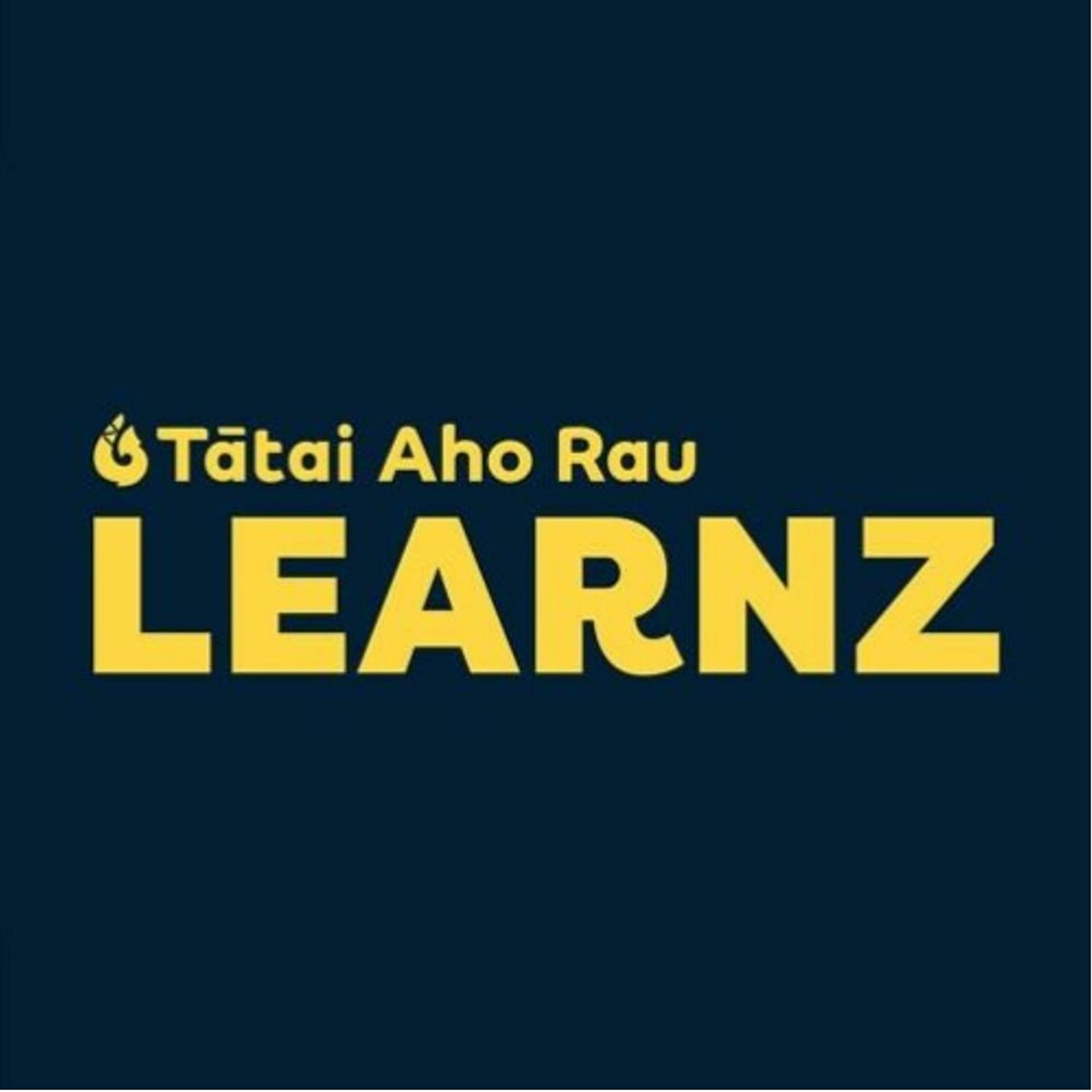Discover Tātai Aho Rau Core Education
Tātai Aho Rau Core Education

Tātai Aho Rau Core Education
Author: Tātai Aho Rau Core Education
Subscribed: 526Played: 1,467Subscribe
Share
© All rights reserved
Description
Tātai Aho Rau Core Education is a trusted national provider of high-quality, learning-related products and services. We have an established reputation working in ways that are Te Tiriti-honouring, learner-centred, collaborative, inclusive, future focused and innovative.
Our work is with individuals, learning communities (early years to secondary), mana whenua, iwi and hapū, Pasifika, corporate businesses, NGO's, Government departments, and ministries.
Our work is with individuals, learning communities (early years to secondary), mana whenua, iwi and hapū, Pasifika, corporate businesses, NGO's, Government departments, and ministries.
460 Episodes
Reverse
The final He Waka Houkura mindset, ‘Seeing the system’, is all about viewing the big picture.
The fifth He Waka Houkura mindset, being open minded, is a mindset grounded in diversity and inclusion. In this podcast, Angela Vermeulen and Tumama Tu’ulua discuss how open mindedness ultimately asks the question of “what type of business do you want to be?".
In this, the fourth of the six He Waka Houkura mindsets, Angela Vermeulen and Tumama Tu’ulua kōrero about thinking critically. Tumama discusses how thinking critically is a vital part of developing an equity lens, recognising barriers, and how the more informed you are the better.
The third He Waka Houkura mindset is all about building trust. Angela Vermeulen and Tumama Tu’ulua discuss what building trust means, what it looks like, and benefits brought about by fostering a safe environment where people can speak up about inequities.
The second instalment of the He Waka Houkura mindset podcasts, Tumama Tu’ulua and Angela Vermeulen kōrero about honoring Te Tiriti o Waitangi
In the first instalment of the He Waka Houkura mindset podcasts, Angela Vermeulen and Tumama Tu’ulua kōrero about identifying power, privilege and bias within both workplaces and the wider world
In this bite-sized podcast, Angela Vermeulen and Tumama Tu’ulua summarise He Waka Houkura | Equity and inclusion suite.
Volcano city virtual field trip
Travel to Tāmaki Makaurau Auckland to discover more about the fiery past of Auckland’s Volcanic Field Ngā Tapuwae-o-Mataoho. There are over 50 volcanoes within the Auckland Volcanic Field (AVF).
The AVF has been active for around 200,000 years. The most recent and largest volcano is Rangitoto, created around 600 years ago from at least two eruptions. As Māori became established in Aotearoa New Zealand, the maunga were valued as natural places for pā, with their rich volcanic soils and their unique form and height for easy defence.
Evidence of a hot magma source deep beneath Tāmaki Makaurau Auckland suggests there could potentially be an eruption in the future. Before a new eruption starts, scientists will be using forecasting models to try to predict when and where a new volcano will appear.
Objective
To find out how large parts of the city would be affected by the likely next eruption, and how to be prepared for the impacts of volcanic activity.
Key learning
Explore science and mātauranga behind the Auckland Volcanic Field Ngā Tapuwae-o-Mataoho.
Look at evidence of past volcanic eruptions.
Hear stories about volcanoes from mana whenua.
Visit Rangitoto, Tāmaki Makaurau Auckland’s youngest and largest volcano.
Explore the inside of a lava cave.
Investigate the impacts of a future eruption in Tāmaki Makaurau Auckland.
Meet experts in hazard preparedness and learn about how you should plan to manage the impacts of a volcanic eruption.
Student-led inquiry
Empower your ākonga to take charge of their learning journey. Encourage them to ask meaningful questions, explore resources, and embark on their own journey of volcanic hazard preparedness.
Curriculum alignment
This virtual field trip aligns with the refreshed New Zealand Curriculum. It covers a range of learning areas, predominantly science and social sciences. Access guidance that supports teaching and learning to align with curriculum goals.
Te Mako shares a kōrero with a past participant of Tātai Aho Rau te reo Māori programme, as a experience speaker, who had learnt te reo Māori on-and-off Riria chose to take a beginner course to kick start her te reo, giving her the confidence to then progress in to a full immersion programme.
Join Anahera McGregor and Jamie Taylor as they kōrero about what Matariki means to them, and what their plans are to observe the holiday.
Jamie and Anahera both share that this Matariki they plan to reflect on the past year, to give thanks for what they have, and look forward with hope for the new year. They also share how connecting with whānau and waking up early to watch Matariki rise are two fulfilling Matariki activities they look forward to.
Anahera and Jamie also explore how Matariki also offers a unique opportunity to relax, be still, and ground yourself and heal, so that you can continue to carry out important kaupapa in the next year.
In this Matariki podcast, Rochelle Savage and Stanley Sarkies, a Te Tiriti Facilitator at Groundwork, kōrero about how to honour Matariki from a pākeha and tauiwi perspective.
This kōrero begins with discussing Stanley’s journey into learning about te reo Māori, Te Tiriti o Waitangi, and te ao Māori, where he acknowledges and explores the role of pākeha and non-Māori in Aotearoa as tiriti partners.
Stanley and Rochelle then go on to discuss how to appropriately commemorate Matariki as pākeha, where Stanley offers the guidance that you can observe the holiday in a way that makes sense to you, and that aligns with the kaupapa of Matariki.
Replay the field trip web conference with Brad from Toitū Te Whenua Land Information New Zealand and Hayes from Discovery Marine Limited.
In this podcast, Angela Vermeulen is joined by Dr Hana O’Regan, ONZM, Tumu Whakarae | Chief Executive Officer of Tātai Aho Rau, and Leighton Evans, Chief Executive Officer of the Rātā Foundation, exploring the topic of equity and discussing their own personal experiences.
Drawing on their personal experiences, Hana and Leighton discuss instances of racism, sexism, and other inequities they encountered growing up. They share their visions of a socially just and equitable world and suggest ways we can foster fairness for future generations.
Hana and Leighton also clarify the confusion between equity and equality, highlighting initiatives their organisations undertake to promote equity.
Tune in for an insightful kōrero with these inspiring leaders as they share their perspectives on creating a more equitable society.
Join Fiona Summerfield and Suzi Gould as they kōrero about their journey to becoming good allies as Pākehā in Aotearoa.
Fiona and Suzi share their personal experiences of recognizing their pākehā privilege in Aotearoa New Zealand. They discuss moments of realisation, such as understanding how the education system favours pākehā and learning about the discrimination present in basic activities like finding a rental property. They also explore the challenges of recognizing systemic inequities, especially for those who benefit from the system.
In their discussion, Suzi and Fiona highlight the importance of actions in being an authentic ally to Māori, Pacific peoples, and other marginalised groups. They acknowledge the difficult aspects of being an ally, such as calling out racism and using one's voice in spaces where these groups are excluded.
Tune in to our latest episode where Tātai Aho Rau kaimahi, product designer Tumama Tu’ulua and learning experience designer Karl Summerfield, explore the creation of the Equity review tool; He Waka Houkura. Inspired by Maya Angelou's words, "Do the best you can until you know better and when you do know better, do better," they explore what equity truly means and how it differs from equality.
In this insightful discussion, Tumama shares his design approach for the equity self-review tool, while Karl reflects on its evolution from an educational focus to a broader audience. Discover what sets this tool apart, as they highlight its grounding in Aotearoa New Zealand's principles, notably Te Tiriti o Waitangi, making it essential for any organization operating in Aotearoa.
Kia ora! Celebrate connecting with our seas (Seaweek 2024) by embarking on an immersive journey into Tamatea Dusky Sound with us.
On this virtual field trip we will uncover unique ecosystems above and below the water, cultural heritage and conservation efforts. This experience provides educators and ākonga with a wealth of engaging resources, including videos, images and GIS maps to enhance your learning adventure.
Objective
Our goal is to inspire and educate ākonga across Aotearoa about the importance of preserving and restoring marine and land biodiversity in the unique Fiordland ecosystem. Through this virtual field trip, we aim to foster a deeper connection to te taiao, equipping ākonga to become active stewards of their local natural environment.
Key learning
Understand the complexity of marine and forest ecosystems and their vulnerability.
Explore the interconnectedness of forest and marine ecosystems.
Promote biosecurity awareness and action.
Embrace the importance of kaitiakitaka o te taiao and kaitiaki – environmental guardianship and guardians.
Student-led inquiry
Empower your ākonga to take charge of their learning journey. Encourage them to ask meaningful questions, explore resources, and embark on their own conservation projects.
Curriculum alignment
This virtual field trip aligns with the refreshed New Zealand Curriculum. It covers a range of learning areas, predominantly science and social sciences. Access guidance to support teaching and learning with a suggested framework, reflective questions, and activity ideas to complement the virtual field trip and align with curriculum goals.
Enjoy this engaging kōrero with Maria Lemalie, Tumuaki | Principal of Te Aratai College and Lena Tuiloma. Maria shares her personal experiences, shaped by her Samoan heritage and family's migration to Aotearoa New Zealand.
Discover Maria's unique approach to leadership, influenced by Samoan cultural values, and gain invaluable advice for leaders, both Pacific and non-Pacific. From building growth and inspiring others to the power of allyship, this podcast offers an exploration of leadership, diversity, and collaboration in education.
About this trip
Kia ora! Join us on an immersive journey to locations around Ōtepoti Dunedin to find out about the population recovery of pakake New Zealand sea lion. Did you know, until 1993, no pups had been born on the mainland for 150 years? Find out about "Mum", the legendary mother sea lion who travelled 600km from the Auckland Islands to found a small but growing population on the mainland.
Meet iwi who have stories about pakake that go back generations. Find out how local rūnaka are rediscovering lost mātauraka and contributing to the protection of this endemic species. Meet scientists and other conservationists and find out why they are excited about the latest developments around this special mammal. This interactive field trip provides educators and ākonga with a wealth of engaging resources, including videos, images and GIS maps, to enhance your learning adventure.
Objective
Our goal is to inspire and educate ākonga across Aotearoa about the importance of saving our native marine species and the heritage stories that surround them. Through this virtual field trip, we aim to foster a deeper connection to te taiao, including marine environments. We hope young people will learn to value and respect our sea lions as they grow to understand their importance to the health of our oceans and to the unique culture of Aotearoa.
Key learning
Gain insights into mātauraka Kai Tahu, highlighting a historical connection to pakake.
Understand the complexity of marine ecosystems and their vulnerability.
Explore the interconnectedness of pakake New Zealand sea lions in the marine food web.
Understand the different points of view people have about marine life.
Foster understanding and raise awareness of our precious taoka species.
Student-led inquiry
Empower your ākonga to take charge of their learning journey. Encourage them to ask meaningful questions, explore resources, and embark on their own conservation projects.
Curriculum alignment
This virtual field trip aligns with the refreshed New Zealand Curriculum. It covers a range of learning areas, predominantly social sciences and science. Access guidance to support teaching and learning with a suggested framework, reflective questions, and activity ideas to complement the virtual field trip and align with curriculum goals.
Join Jamie Taylor in an insightful kōrero with Julia Wikeepa, CEO of Hā Habit and Hauora educator, as they delve into the essence of hauora | wellbeing, with a special focus on harnessing the power of hā | breath for mindfulness.
Discover Julia's personal journey from struggles with low mood, anxiety, to finding solace and growth through mindfulness practices. Hear how her experiences, including her son's mental health challenges, inspired her to embark on a path of self-discovery and eventually lead her to establish Hā Habit, a platform dedicated to supporting others on their wellbeing journey. Julia also shares valuable insights on how whānau and educators can incorporate breathwork and mindfulness practices into their routines to nurture emotional resilience in children.
Tune in for an enriching dialogue that offers actionable strategies and heartfelt wisdom for cultivating holistic wellbeing in everyday life.
Join Karl Summerfield and guest Lex Davis, Deputy Principal at Ormiston Senior College, as they explore the world of teaching in Aotearoa. Lex shares insights on the power of authenticity in the workplace, explaining how being your true self as a tumuaki or kaiako can lead to meaningful connections, even if it means embracing vulnerability. Discover how authenticity paves a way for success as a kaiako and gain valuable perspectives on the rewards of genuine self-expression.
Top Podcasts
The Best New Comedy Podcast Right Now – June 2024The Best News Podcast Right Now – June 2024The Best New Business Podcast Right Now – June 2024The Best New Sports Podcast Right Now – June 2024The Best New True Crime Podcast Right Now – June 2024The Best New Joe Rogan Experience Podcast Right Now – June 20The Best New Dan Bongino Show Podcast Right Now – June 20The Best New Mark Levin Podcast – June 2024
 United States
United States
















i appreciate your efforts and i am also working on a education project and helping students you may check https://10thclassresult.site/